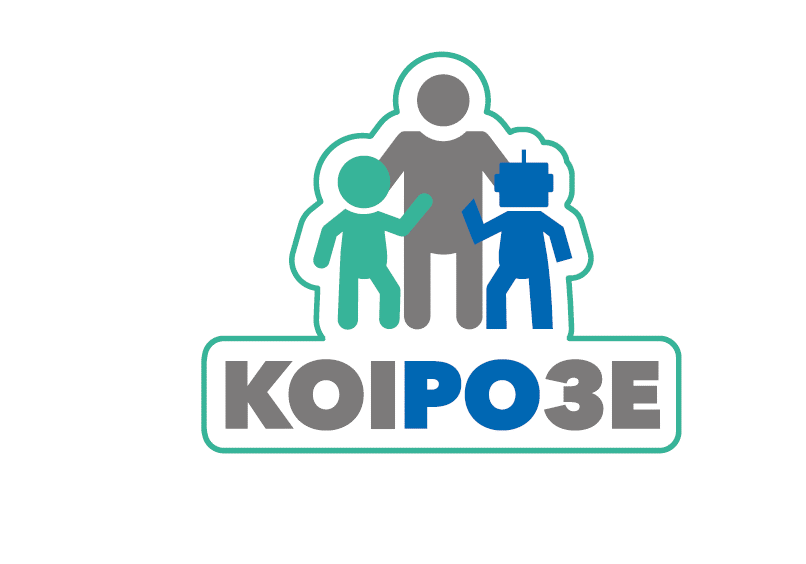
Deliverables
# 1: Educational / pedagogical design actions in special education and identification of appropriate equipment
Summary: Recording of Special Education services. Expert interviews. Recording child support requirements with social robots and supportive ICT. Technology market research feasibility study. Designing training programs. Pedagogical planning.
Deliverables:
D1.1) Collection and analysis of children’s education data.
D1.2) Report setting framework for training.
D1.3) Exhibition / study of robot suitability and supportive technologies.
D1.4) Exhibition for determining child interaction lines with robots.
D1.5) Exhibition of integrated programs for the education of children and educators with social robots.
# 2: Supply and installation / adaptation of equipment
Summary: Supply of social robots and other materials. Adaptation of materials. Robot training. Adaptation of existing software. Development of basic robot software.
Deliverables:
D2.1) Equipment purchase invoices.
D2.2) Assembly of social robots and adjustment of additional equipment.
D2.3) Installation and configuration of ready-made software for the robot.
D2.4) Website of the Project and social media.
D2.5) Standards, basicly trained social robots.
# 3: Research and development of human interaction models with robots
Summary: Continuation of interviews. Model development. Laboratory tests of the models and improvements.
Deliverables:
D3.1) A (1) technical analysis report of the models.
D3.2) Development of model simulation test software.
D3.3) Scientific publications in: 2 (two) approved journals, 2 (two) international conferences with judges.
# 4: Development of model implementation software
Summary: Development of robot control software. Development of visual analysis software for children’s behavior. Development of “satisfaction indicators” for evaluation. Laboratory tests, improvements in models, adaptation of training programs
Deliverables:
D4.1) Robot control software.
D4.2) Behavior analysis algorithm.
D4.3) Visual analysis software.
D4.4) Methods of measuring satisfaction and efficiency.
D4.5) Visual evaluation software.
D4.6) Support software.
D4.7) One (1) algorithm evaluation report in laboratory conditions.
D4.8) An (1) report of the system architecture.
D4.9) Standard trained robot.
D4.10) Scientific publications in: 2 (two) approved journals, 5 (five) international conferences with judges.
# 5: Experiments in real conditions / Evaluation and standardization of project results and extroversion
Summary: Experiments in practice, improvements in models, corrections of training programs. Improvements in pedagogical planning. Practical applications for automatic evaluation of training programs. Technical improvements in hardware and / or software. Systematic collection of statistical evaluation data.
Deliverables:
D5.1) Evaluation report of training programs.
D5.2) Equipment functionality evaluation report and improvement points.
D5.3) Social robot implementation evaluation report.
D5.4) Scientific publications in: 1 (one) approved journal, 3 (three) international conferences with judges.
D5.5) One (1) collective volume (Open Access book).
D5.6) Organizing a conference.
# 6: Preparatory actions for commercial disposal
Summary: Study and design of commercial promotion of the produced product. Development of informative material (forms, pages on social networks, etc.). Organizing and participating in industry exhibitions. Organizing public lectures / presentations. Securing product rights.
Deliverables:
D6.1) Project commercial announcements of the Project.
D6.2) Design study of innovative product features.
D6.3) Business entry plan.
D6.4) Marketing plan for the commercial distribution of the product.
D6.5) Production of printed information material.
D6.6) Organization of a conference. Paragraph
D6.7) Patents (1 National & 1 European), copyright
